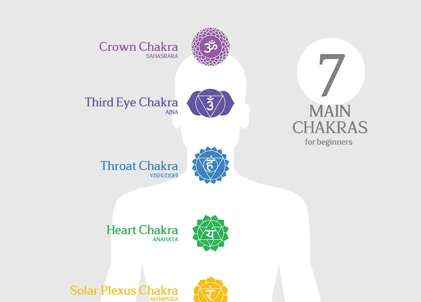Embarking on a journey of emotional healing can be a perplexing and overwhelming task. Negative energy can often weigh us down and hinder our wellbeing. One powerful technique for managing and releasing this negative energy is through chakra meditation. By tapping into the body’s seven chakras, or energy centers, we can restore balance, harmonize emotions, and promote overall emotional wellbeing. In this article, we will explore the world of chakra meditation for emotional healing, offering step-by-step guidance on how to incorporate this practice into your life. Discover the profound connection between chakras and emotions, the benefits of chakra meditation, and techniques to enhance your meditation practice. Join us on this transformative journey towards managing and releasing negative energy, and discover the path to emotional healing and inner harmony.
Contents
- What are Chakras?
- The Connection Between Chakras and Emotions
- Benefits of Chakra Meditation for Emotional Healing
- How to Prepare for Chakra Meditation
- Chakra Meditation Techniques for Emotional Healing
- Incorporating Affirmations into Chakra Meditation
- Additional Tips for Effective Chakra Meditation
- Managing Negative Energy During Chakra Meditation
- Releasing Negative Energy After Chakra Meditation
- Other Measures for Emotional Healing
- Conclusion
-
Frequently Asked Questions
- 1. What does it mean when a chakra is blocked?
- 2. How do I know if my chakras are out of balance?
- 3. Can chakra meditation help with emotional healing?
- 4. How long does it take to see the effects of chakra meditation?
- 5. Can I practice chakra meditation if I’m a beginner?
- 6. How often should I practice chakra meditation?
- 7. Can I focus on chakra meditation for specific emotional issues?
- 8. Can chakra meditation be combined with other forms of meditation?
- 9. How can I enhance the effectiveness of my chakra meditation?
- 10. Are there any potential side effects of chakra meditation?
- References
What are Chakras?
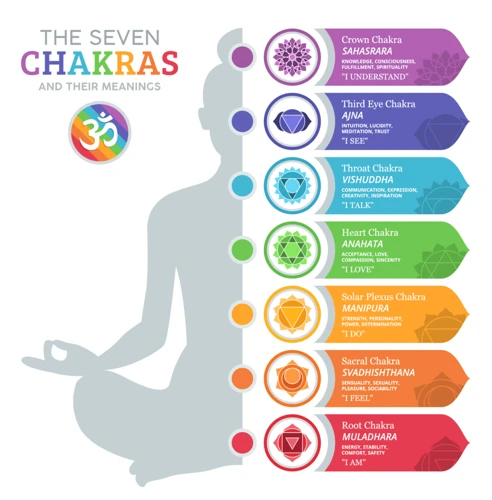
Chakras are energy centers within our bodies that play a vital role in our physical, emotional, and spiritual well-being. Derived from the Sanskrit word for “wheel,” chakras are believed to be spinning wheels of energy located along the central axis of our body. There are seven main chakras, each corresponding to specific areas of our body and representing unique qualities and characteristics.
The Root Chakra: Located at the base of the spine, the root chakra is associated with feelings of stability, safety, and groundedness.
The Sacral Chakra: Found in the lower abdomen, the sacral chakra relates to our sexuality, creativity, and emotional balance.
The Solar Plexus Chakra: Situated in the upper abdomen, the solar plexus chakra governs our self-confidence, personal power, and sense of identity.
The Heart Chakra: Positioned in the center of the chest, the heart chakra represents love, compassion, and emotional healing.
The Throat Chakra: Located in the throat area, the throat chakra is associated with clear communication, self-expression, and speaking our truth.
The Third Eye Chakra: Situated between the eyebrows, the third eye chakra is linked to intuition, inner wisdom, and spiritual insight.
The Crown Chakra: Positioned at the top of the head, the crown chakra connects us to higher consciousness, spirituality, and a deeper understanding of the universe.
Each chakra is said to vibrate at a specific frequency and is associated with a particular color, sound, and element. When these energy centers are in alignment and flowing harmoniously, we experience a sense of balance, vitality, and emotional well-being. However, blockages or imbalances within our chakras can lead to emotional turbulence, physical ailments, and a general feeling of disconnection. Understanding the nature of chakras is crucial as we embark on the journey of chakra meditation for emotional healing and overall well-being.
The Connection Between Chakras and Emotions
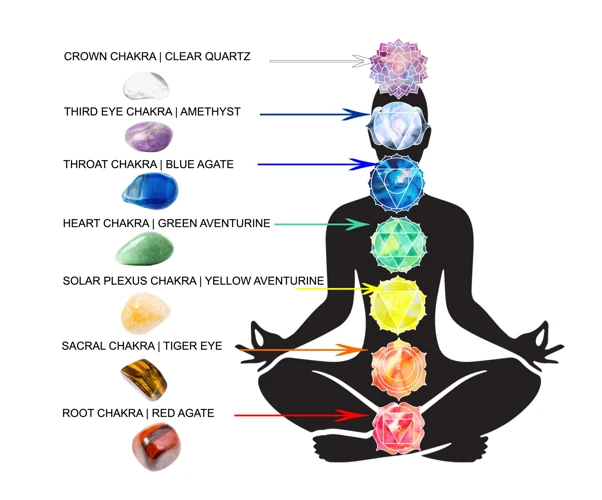
The connection between chakras and emotions is a fundamental aspect of our well-being. Each chakra corresponds to specific emotions and psychological qualities, influencing how we experience and process our feelings. When our chakras are balanced and energy flows freely, we can effectively manage and regulate our emotions.
The Root Chakra: The root chakra governs our sense of safety and security. When this chakra is in balance, we feel grounded, stable, and confident in ourselves and our environment.
The Sacral Chakra: The sacral chakra is associated with our emotions, creativity, and sexuality. It enables us to express our emotions and experience pleasure in a healthy way.
The Solar Plexus Chakra: The solar plexus chakra is linked to our self-esteem and personal power. When this chakra is balanced, we have a strong sense of self-worth and feel confident in asserting our boundaries.
The Heart Chakra: As the name suggests, the heart chakra is connected to love, compassion, and emotional healing. It allows us to give and receive love, fostering healthy relationships and emotional well-being.
The Throat Chakra: The throat chakra influences our ability to express ourselves verbally and authentically. It allows us to communicate our emotions, needs, and desires effectively.
The Third Eye Chakra: The third eye chakra is associated with intuition, insight, and self-awareness. When this chakra is balanced, we have a deep understanding of our emotions and can trust our inner guidance.
The Crown Chakra: The crown chakra connects us to higher consciousness and spiritual awareness. It enables us to transcend emotional limitations and experience a sense of peace and inner harmony.
By understanding the connection between chakras and emotions, we can identify imbalances within our energy centers and work towards restoring equilibrium. Chakra meditation provides a powerful tool for nurturing emotional well-being by harmonizing and balancing these energy centers. The practice of chakra meditation allows us to delve deep into our emotions, releasing any negativity and promoting emotional healing. To learn more about the profound impacts of chakra meditation on emotional well-being, check out this article on the scientific benefits of chakra meditation.
Benefits of Chakra Meditation for Emotional Healing
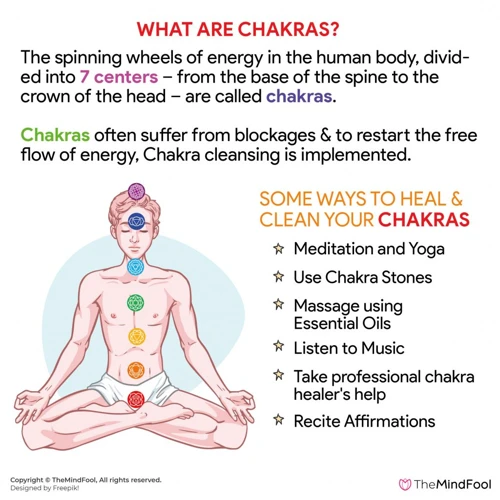
Chakra meditation offers a wealth of benefits for emotional healing, allowing us to manage and release negative energy in a profound and transformative way. Through the practice of chakra meditation, we can experience the following benefits:
1. Balancing Emotions: Chakra meditation helps to balance and harmonize our emotions by addressing blockages within our energy centers. By focusing on each chakra and bringing it into alignment, we can release stagnant or negative energy, promoting emotional stability and well-being.
2. Enhancing Self-Awareness: Chakra meditation cultivates self-awareness by allowing us to connect with our inner selves. As we explore each chakra, we gain insight into our emotions, thought patterns, and behaviors, enabling us to make positive changes and grow on a personal level.
3. Promoting Relaxation and Stress Relief: Chakra meditation encourages deep relaxation and stress relief, as the practice involves deep breathing, visualization, and mindfulness. This combination helps to calm the nervous system, reduce anxiety, and promote a sense of tranquility and inner peace.
4. Boosting Energy and Vitality: By working with the chakras and their associated energy, chakra meditation helps to rejuvenate and revitalize our physical and emotional well-being. When our energy centers are balanced and flowing freely, we experience increased energy, vitality, and overall vitality.
5. Cultivating Emotional Resilience: Regular practice of chakra meditation can cultivate emotional resilience by helping us release past emotional wounds and traumas. By clearing negative energy and promoting healing, chakra meditation empowers us to navigate life’s challenges with greater ease and resilience.
6. Fostering Spiritual Growth: Chakra meditation is not solely focused on emotional healing but also promotes spiritual growth. By connecting with our chakras and exploring our inner energy, we deepen our spiritual awareness, expand our consciousness, and tap into our higher selves.
Chakra meditation is a powerful tool for emotional healing and overall well-being. Its benefits extend beyond the emotional realm, encompassing physical, mental, and spiritual aspects of our being. By incorporating this practice into our lives, we can embark on a transformative journey of self-discovery, healing, and personal growth. To learn more about chakra meditation techniques and its extensive benefits, check out our Ultimate Guide to Chakra Meditation or explore the profound connection between chakra meditation and personal growth in our article on Chakra Meditation for Harnessing Energy and Personal Growth.
How to Prepare for Chakra Meditation
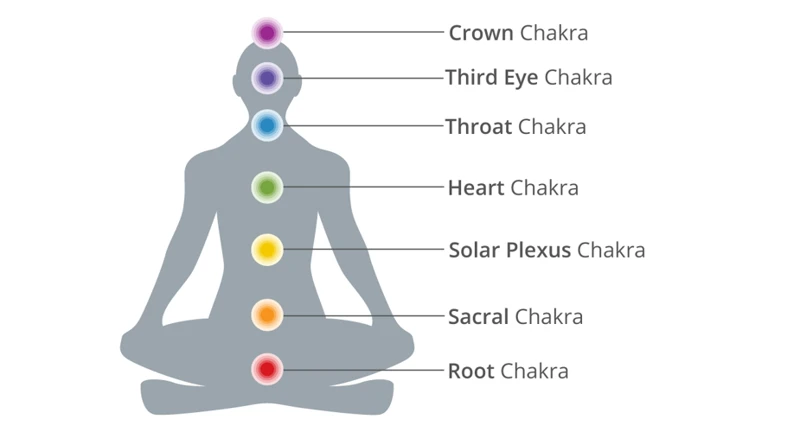
Preparing for chakra meditation is essential to create a conducive environment for deep relaxation and energy alignment. Follow these steps to ensure that you are adequately prepared for your chakra meditation practice:
Create a Sacred Space: Find a quiet and peaceful area where you can meditate without interruptions. Clear the space of any clutter and make it comfortable by adding cushions or a meditation mat.
Set an Intention: Before you begin your chakra meditation, set a clear intention for your practice. This could be focused on emotional healing, releasing negative energy, or any other specific intention that aligns with your needs.
Choose the Right Time: Select a time of day when you are least likely to be disturbed or distracted. Early morning or late evening can be ideal for many, but find a time that works best for you.
Wear Comfortable Clothing: Opt for loose and comfortable clothing that allows you to sit or lie down comfortably for an extended period. This will help you relax and fully engage in the meditation practice.
Engage in Gentle Stretching: Prior to starting your chakra meditation, perform gentle stretching exercises to release any physical tension in your body. This will help you relax and allow the energy to flow more freely during the meditation.
Use Aromatherapy: Enhance your meditation experience by incorporating soothing scents such as lavender, frankincense, or sandalwood. Use essential oils or candles to create a calming atmosphere.
Play Soft Background Music: Choose soft instrumental music or nature sounds to create a tranquil ambiance. This can help drown out any external distractions and promote relaxation.
Settle into a Comfortable Posture: Find a seated or lying down position that feels comfortable for you. It could be cross-legged on the floor, sitting on a chair, or lying on your back. Make sure your spine is straight and shoulders relaxed.
By taking the time to prepare yourself and your environment, you will create a nurturing space for chakra meditation. This will allow you to dive deeper into your practice and experience the full benefits of emotional healing and energy alignment.
Chakra Meditation Techniques for Emotional Healing
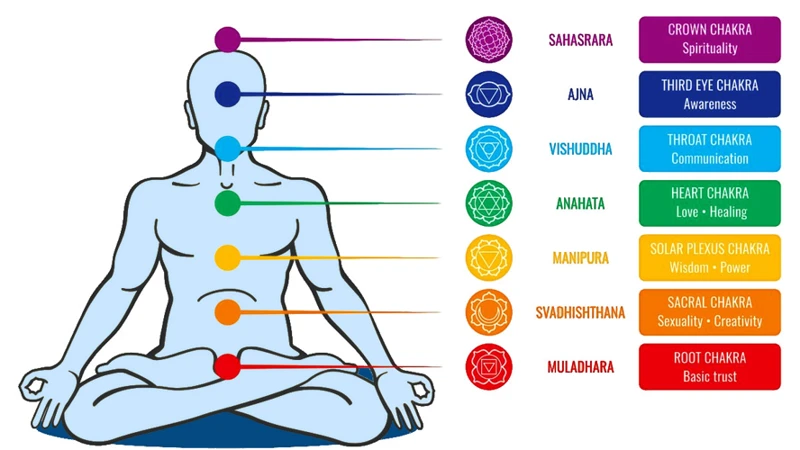
Chakra meditation offers a variety of techniques that can be practiced for emotional healing and restoration. Each technique focuses on a specific chakra, allowing you to direct your energy and attention to the areas that need healing. Here are some chakra meditation techniques you can incorporate into your practice:
1. Root Chakra Meditation: Sit or lie down comfortably and visualize a vibrant red energy at the base of your spine. Imagine this energy grounding you, providing feelings of stability and security.
2. Sacral Chakra Meditation: Find a quiet space and envision a warm, orange light in your lower abdomen. Focus on embracing your creativity, passion, and emotions. Visualize this energy flowing freely and harmoniously.
3. Solar Plexus Chakra Meditation: Sit with a straight spine and visualize a bright yellow light radiating from your solar plexus area. Take deep breaths, affirming your personal power and self-confidence.
4. Heart Chakra Meditation: Sit in a comfortable position and visualize a soothing green light at the center of your chest. Breathe deeply into this area, allowing feelings of love, compassion, and forgiveness to emanate from your heart.
5. Throat Chakra Meditation: Sit upright and picture a serene blue light in your throat region. Practice deep breathing exercises, focusing on expressing your authentic voice and communicating your truth.
6. Third Eye Chakra Meditation: Close your eyes and imagine an indigo light between your eyebrows. Inhale and exhale slowly, cultivating inner wisdom, intuition, and clarity of thought.
7. Crown Chakra Meditation: Sit in a peaceful environment and visualize a brilliant violet light at the top of your head. Breathe deeply, envisioning a connection to higher consciousness, spirituality, and divine wisdom.
Remember to approach each meditation technique with an open mind and allow yourself to fully experience the sensations and emotions that arise. Incorporating these techniques into your chakra meditation practice can help cleanse and balance your energy centers, leading to profound emotional healing and a greater sense of well-being.
1. Root Chakra Meditation
1. Root Chakra Meditation: Root chakra meditation focuses on the energy center located at the base of the spine. This chakra represents our foundation, stability, and feelings of security. To begin root chakra meditation, find a quiet and comfortable space where you can sit or lie down. Close your eyes and take a few deep breaths, allowing yourself to relax and unwind. Visualize a vibrant red light at the base of your spine, representing the energy of the root chakra. As you inhale, imagine this red light growing brighter and more powerful. As you exhale, envision any negativity or blockages being released from the chakra, allowing it to spin and flow freely.
Focus on your connection to the Earth, imagining roots extending from the base of your spine, grounding you deeply into the Earth’s core. Feel the stability and support of the Earth beneath you. As you continue with your meditation, repeat affirmations that resonate with the root chakra, such as “I am safe and secure,” “I am rooted and grounded,” or “I trust in the process of life.”
During this meditation, you may experience physical sensations, emotions, or memories surfacing. Allow these sensations to come and go without judgment or attachment. Simply observe and release. By practicing root chakra meditation regularly, you can enhance feelings of stability, increase your sense of security, and find a greater connection to the Earth and the present moment.
2. Sacral Chakra Meditation
Sacral Chakra Meditation focuses on balancing and energizing the sacral chakra, which is responsible for our creativity, sensuality, and emotional well-being. By clearing blockages and harmonizing this energy center, we can experience a greater sense of passion, joy, and connection to our emotions. Here is a step-by-step guide to practicing Sacral Chakra Meditation:
1. Find a quiet and comfortable space where you can sit or lie down without distractions. Close your eyes and take a few deep breaths to center yourself.
2. Visualize a warm, glowing orange light in the area of your lower abdomen, where the sacral chakra is located. Envision this light expanding and filling your entire pelvic region.
3. As you focus on the sacral chakra, repeat affirmations related to creativity, emotional well-being, and sensuality. For example, you could say, “I embrace my creativity and let it flow freely,” or “I am in touch with my emotions and express them lovingly.”
4. Engage in deep belly breathing, inhaling and exhaling slowly and deeply. With each breath, imagine the orange light growing brighter and more vibrant, cleansing and revitalizing the sacral chakra.
5. To further enhance the meditation, you can incorporate specific yoga poses that target the sacral chakra, such as the pigeon pose or butterfly pose. These poses help release any tension or blockages that may be present in the pelvic area.
6. While in the meditation, allow yourself to freely express any emotions that arise. It is essential to honor and accept all feelings without judgment or resistance.
7. Continue the meditation for a duration that feels comfortable to you, gradually increasing your meditation time as you become more experienced.
By practicing Sacral Chakra Meditation regularly, you can cultivate a deeper connection with your creativity, sensuality, and emotional intelligence, leading to greater fulfillment and overall well-being. Remember to approach this practice with patience, openness, and a willingness to explore your inner landscape. Embrace the transformative power of Sacral Chakra Meditation and let it guide you towards emotional healing and personal growth.
3. Solar Plexus Chakra Meditation
Solar Plexus Chakra Meditation
To balance and heal the solar plexus chakra, follow these steps during your chakra meditation practice:
1. Find a quiet and comfortable space where you can sit or lie down in a relaxed position. Close your eyes and take a few deep, cleansing breaths to center yourself.
2. Visualize a warm, glowing yellow light radiating from your solar plexus, which is located just above your navel. Envision this light growing brighter with each breath, filling your entire abdominal region.
3. As you focus on the energy of the solar plexus chakra, repeat affirmations that are related to personal power, confidence, and self-esteem. For example, you could say, “I am worthy. I embrace my personal power. I am confident and capable.”
4. As you continue to breathe deeply, imagine this vibrant yellow light expanding beyond your body and surrounding you with a powerful aura of self-assuredness and inner strength.
5. You can enhance your solar plexus chakra meditation by incorporating specific yoga poses that engage the core, such as “Boat Pose” or “Bow Pose.” These poses help activate and stimulate the solar plexus area.
6. To deepen your connection to the solar plexus chakra, consider using crystals like citrine, amber, or tiger’s eye. You can place them on your solar plexus area during meditation or hold them in your hands to amplify the energy.
7. As you near the end of your meditation, take a few moments to express gratitude for the qualities associated with the solar plexus chakra, such as personal power, confidence, and self-worth. Embrace these qualities as part of your being.
Remember, consistency is key when it comes to chakra meditation. Regularly practicing solar plexus chakra meditation can help restore balance and strengthen your sense of self, allowing you to confidently navigate through life with a clear understanding of your personal power and worth.
4. Heart Chakra Meditation
Heart chakra meditation focuses on the fourth chakra, also known as Anahata, which is located in the center of the chest. This chakra is associated with love, compassion, and emotional healing. When the heart chakra is balanced, it allows us to give and receive love freely, cultivate meaningful connections, and experience deep emotional healing.
To begin heart chakra meditation, find a quiet and comfortable space where you can relax without distractions. Sit in a crossed-legged position or on a chair with your back straight and shoulders relaxed. Close your eyes and take a few deep breaths to center yourself.
Visualize a vibrant green light at the center of your chest, emanating from the heart chakra. As you inhale, imagine this green light expanding and filling your entire body with love and healing energy. As you exhale, release any tension or negative emotions that may be blocking the flow of energy in your heart chakra.
Focus on cultivating feelings of love, empathy, and compassion. You can bring to mind loved ones, pets, or experiences that evoke these emotions within you. Allow yourself to fully embrace and experience these positive emotions, letting them flow through your heart chakra.
You can enhance your heart chakra meditation by incorporating a mantra or affirmation. Repeat the affirmation “I am open to giving and receiving love” or any other affirmation that resonates with you. As you recite the affirmation, feel the energy of love and compassion radiating from your heart chakra.
Continue this meditation for as long as you feel comfortable, ideally for about 10 to 15 minutes. When you are ready to conclude the meditation, take a few deep breaths and slowly open your eyes.
Heart chakra meditation can be a powerful practice for fostering emotional healing, forgiveness, and cultivating deeper connections with others. Regularly incorporating this meditation into your routine can help you open your heart, release emotional blockages, and experience a greater sense of love, compassion, and emotional well-being.
5. Throat Chakra Meditation
Throat chakra meditation focuses on the fifth energy center, located in the throat area. The throat chakra, also known as Vishuddha, is associated with clear communication, self-expression, and speaking our truth. When this chakra is blocked or unbalanced, it can lead to difficulties in expressing ourselves, fear of judgment, and a lack of authenticity. Performing throat chakra meditation can help open and balance this energy center, enabling us to communicate effectively and assertively express our needs and desires.
To begin throat chakra meditation, find a quiet and comfortable space where you can sit in a relaxed position. Close your eyes and take a few deep breaths, allowing your body to relax and release any tension. Visualize a bright blue spinning wheel of energy located in your throat area.
As you focus on the throat chakra, repeat affirmations that strengthen and activate this energy center. Affirmations such as “I express myself with confidence and clarity,” or “My voice is powerful and authentic” can be used during your meditation practice. Repeat these affirmations silently or out loud, allowing their positive energy to permeate your throat chakra.
Another technique to enhance throat chakra meditation is chanting. The sound associated with the throat chakra is “HAM.” You can chant this sound repeatedly during your meditation, allowing the vibrations to stimulate and awaken the energy of your throat chakra.
Visualizations can also be incorporated into your throat chakra meditation. Imagine a clear, blue light flowing into your throat, dissolving any blockages or restrictions. Visualize this light expanding and radiating from your throat, empowering your voice and enhancing your ability to express yourself freely.
During throat chakra meditation, practice active listening by paying attention to the words and sounds around you. This cultivates mindfulness and promotes a deeper connection to your own voice.
After your meditation, take a few moments to journal or reflect on any insights or emotions that arose during the practice. This self-reflection can provide valuable insights into your patterns of communication and allow you to make conscious changes where necessary.
Throat chakra meditation is a powerful tool for enhancing communication, expressing our authentic selves, and nurturing healthy relationships. Regular practice can help release any pent-up emotions and fears, allowing us to speak our truth with confidence and conviction.
6. Third Eye Chakra Meditation
Meditating on the third eye chakra is a powerful practice that supports intuition, insight, and spiritual awareness. When this chakra is balanced, we experience clarity of thought, enhanced perception, and a deep connection to our inner wisdom. Here is a step-by-step guide to performing third eye chakra meditation:
1. Find a quiet and comfortable space where you can relax without distractions. Sit in a cross-legged position or on a chair with your spine straight and your body relaxed.
2. Close your eyes and take a few deep breaths to center yourself. Allow any tension or stress to melt away with each exhale.
3. Direct your attention to the center of your forehead, between your eyebrows. This is the location of the third eye chakra.
4. Visualize a deep indigo or purple-colored light at this point. Imagine this light expanding and glowing brighter with each breath, activating and opening your third eye chakra.
5. As you focus on the third eye chakra, bring your awareness to any sensations, images, or thoughts that arise. Embrace them without judgment, allowing them to pass through your consciousness.
6. You can enhance this meditation by incorporating specific affirmations, such as “I trust my intuition” or “I am connected to my inner wisdom.”
7. Stay in this meditative state for 10-15 minutes, or longer if desired. Continue to breathe deeply and maintain your focus on the third eye chakra.
8. When you are ready to end the meditation, slowly bring your awareness back to your surroundings. Gently open your eyes and take a moment to ground yourself before continuing with your day.
Practicing third eye chakra meditation regularly can deepen your intuition, expand your consciousness, and foster a greater connection to your spiritual self. Remember to approach this meditation with an open mind and a willingness to explore the realms of inner wisdom and insight.
7. Crown Chakra Meditation
The Crown Chakra, also known as Sahasrara, is the seventh and highest chakra in the chakra system. Located at the top of the head, it is associated with spiritual connection, higher consciousness, and enlightenment. Crown chakra meditation is a powerful practice that allows us to tap into our spiritual nature and expand our awareness.
To begin crown chakra meditation, find a quiet and comfortable space where you can sit or lie down in a relaxed position. Close your eyes and take a few deep breaths, allowing your body and mind to become calm.
Visualize a thousand-petaled violet lotus flower radiating from the top of your head, representing the crown chakra. As you focus on this image, imagine a beam of pure white light entering the top of your head and flowing down through your body. Feel this light cleansing and energizing your entire being.
As you continue your meditation, silently repeat affirmations that resonate with the crown chakra, such as “I am connected to the divine,” or “I trust in the wisdom of the universe.” Allow these affirmations to deepen your sense of spiritual connection and open yourself to receiving higher guidance and insights.
You can enhance your crown chakra meditation by incorporating gentle movements, such as slow head rotations or gentle stretching of the neck. This helps to release any tension or blockages in the crown chakra area.
Another helpful technique is to listen to calming music or binaural beats specifically designed to activate and balance the crown chakra. These frequencies can assist in aligning your energy and enhancing your meditation experience.
Practice crown chakra meditation regularly to foster a deeper spiritual connection, expand your consciousness, and experience a sense of unity with the universe. It can help you cultivate a greater understanding of your purpose, find clarity in decision-making, and experience a profound sense of peace and contentment. Embrace the power of crown chakra meditation to unlock your spiritual potential and embark on a transformative journey of self-discovery.
Incorporating Affirmations into Chakra Meditation

Incorporating affirmations into chakra meditation can enhance the healing and balancing effects of the practice. Affirmations are positive statements that we repeat to ourselves, consciously rewiring our thought patterns and beliefs. When combined with chakra meditation, affirmations can help to align our energy centers and promote emotional healing.
To incorporate affirmations into your chakra meditation practice, begin by selecting affirmations that resonate with each chakra. For example, for the root chakra, you may choose affirmations such as “I am safe and grounded” or “I trust in the abundance of the universe.” For the sacral chakra, affirmations like “I embrace my creativity and sensuality” or “I allow pleasure and joy into my life” can be effective. Tailor the affirmations to address any issues or imbalances you may be experiencing.
During your chakra meditation, find a comfortable position and focus on the specific chakra you are working with. Take a few deep breaths and connect with the energy center. As you exhale, mentally or aloud, repeat the chosen affirmation for that chakra several times. Visualize the affirmations infusing the chakra with healing energy.
For instance, while focusing on the heart chakra, you may repeat affirmations such as “I am open to giving and receiving love” or “I forgive and release all past hurts.” Feel the energy of love and compassion radiating from your heart chakra as you repeat the affirmations.
Continue this process, moving through each chakra and repeating the corresponding affirmations. Allow yourself to tune in to the vibrations and sensations, and let the affirmations resonate deeply within you.
By incorporating affirmations into your chakra meditation practice, you can consciously shift your mindset, release negative thought patterns, and foster a greater sense of self-love, acceptance, and emotional healing. Remember to choose affirmations that feel authentic to you and reflect the qualities you wish to cultivate within each chakra. Allow the power of positive affirmations to amplify the benefits of chakra meditation for emotional well-being.
Additional Tips for Effective Chakra Meditation
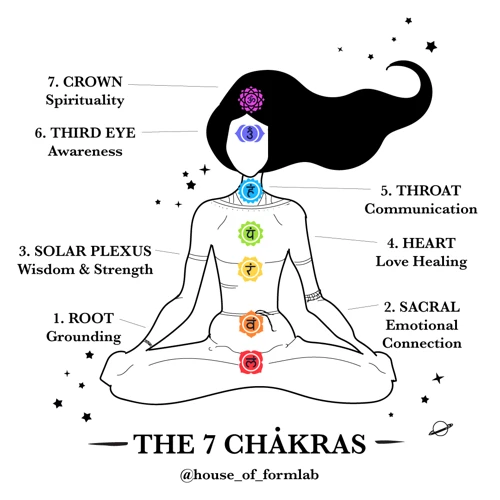
To enhance your chakra meditation practice and make it more effective, consider incorporating these additional tips:
1. Create a Sacred Space: Set aside a designated area in your home or another quiet and peaceful location for your chakra meditation practice. Decorate it with objects that resonate with the energy of each chakra, such as crystals, candles, or images.
2. Use Essential Oils: Certain essential oils have properties that can help balance and activate specific chakras. For example, lavender oil can promote relaxation and balance the crown chakra, while ylang-ylang oil can enhance the sacral chakra’s creative energy. Use these oils during your meditation practice by diffusing them or applying them to your pulse points.
3. Practice Breathwork: Deep, conscious breathing can be a powerful tool for chakra meditation. As you inhale, imagine that you are drawing in pure, positive energy. As you exhale, visualize releasing any stagnant or negative energy from your chakras.
4. Incorporate Sound Therapy: Sound has a profound impact on our energetic and emotional state. Consider using sound therapy tools, such as singing bowls, tuning forks, or guided chakra meditation audios, to enhance your practice. The vibration and resonance of these sounds can help align and balance your chakras.
5. Visualize the Chakra Colors: While in meditation, visualize each chakra as a vibrant and glowing wheel of its corresponding color. Imagine the color becoming brighter and more intense with each breath, infusing your body and energy centers with its healing energy.
6. Practice Regularly: Consistency is key when it comes to chakra meditation. Make it a regular part of your self-care routine, committing to a specific time and duration for your practice. With time and dedication, you will start to experience the transformative effects of chakra meditation on your emotional well-being.
Remember, chakra meditation is a personal and intuitive practice. Trust your instincts and listen to your body as you explore different techniques and approaches. Stay open to the process, and with patience and persistence, you will deepen your connection, manage negative energy, and experience emotional healing through chakra meditation.
Managing Negative Energy During Chakra Meditation
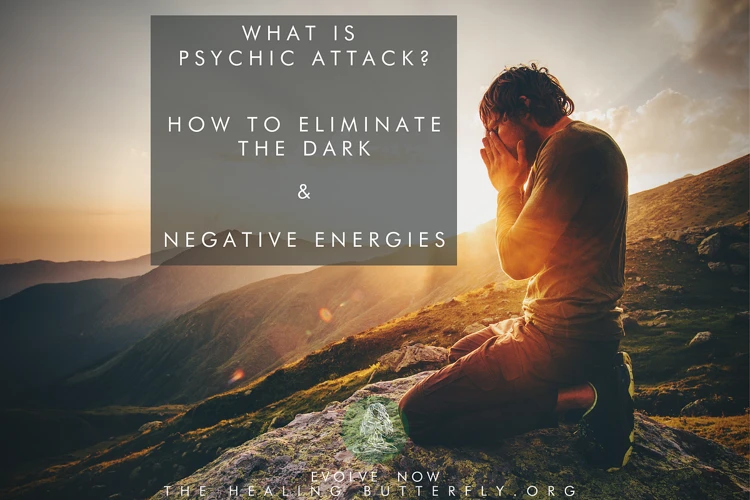
During chakra meditation, it is common to encounter negative energy or emotions that arise to the surface. This can be unsettling, but it is important to remember that the purpose of chakra meditation is to address and release these negative energies for emotional healing. Here are some effective strategies for managing negative energy during chakra meditation:
1. Acknowledge and observe: Instead of resisting or suppressing negative feelings, acknowledge their presence and observe them without judgment. Allow yourself to fully experience the emotions as they arise, understanding that this is a natural part of the healing process.
2. Breathe and center: Take deep, calming breaths to center yourself and redirect your focus back to your chakra meditation practice. By focusing on your breath and the present moment, you can help regulate your emotions and return to a state of balance.
3. Visualize release: As you meditate on each chakra, visualize the negative energy associated with that particular energy center being released and transformed into positive, healing energy. Imagine it dissolving and dissipating, leaving you feeling lighter and more at peace.
4. Practice self-compassion: Be gentle and compassionate with yourself throughout the process. Understand that emotions can be complex and it is natural to experience ups and downs. Treat yourself with kindness and extend compassion to any negative thoughts or emotions that arise.
5. Seek guidance: If you find it challenging to manage negative energy during chakra meditation, consider seeking guidance from a meditation teacher, energy healer, or therapist who can provide support and help you navigate through any difficulties.
Remember, the purpose of chakra meditation is to facilitate emotional healing and release negative energy, so trust in the process and allow yourself to fully embrace the journey. With time and practice, you will develop greater resilience and emotional balance, ultimately leading to a more harmonious state of being.
Releasing Negative Energy After Chakra Meditation

After completing a chakra meditation session, it is important to release any residual negative energy that may have been brought to the surface. This step ensures that the energy that was cleared and balanced during the meditation does not linger within you. Here are some effective methods for releasing negative energy after chakra meditation:
1. Grounding Techniques: Engaging in grounding activities can help you reconnect with your physical body and release any excess energy. Take a walk in nature, practice barefoot walking, or simply sit on the ground and visualize roots growing from your feet into the earth, grounding and grounding you with each breath.
2. Journaling: Writing down your thoughts, emotions, and experiences during the meditation can provide a powerful outlet for releasing any leftover negativity. Allow yourself to freely express your feelings on the paper, letting go of any residual energy that may be lingering within you.
3. Sound Healing: Incorporating sound healing practices can assist in clearing any remaining negative energy. You can listen to calming music, play a singing bowl, or practice chanting, focusing on the vibration and resonance of the sound to help dislodge and release any stagnant energy.
4. Visualization: Visualize a flowing river or a cleansing waterfall, and imagine standing under it, allowing the water to wash away any negativity, leaving you feeling refreshed and cleansed.
5. Energetic Clearing Practices: Engage in energetic clearing practices such as smudging with sage or using Palo Santo to cleanse your space, body, and aura. Alternatively, you can use crystals like clear quartz or black tourmaline to absorb and transmute any residual negative energy.
Remember, the key is to let go of any negative emotions or energy that may have come up during your chakra meditation practice. By intentionally releasing and clearing this energy, you create space for new positive energy to flow freely within you, promoting emotional healing and overall wellness.
Other Measures for Emotional Healing
When it comes to emotional healing, chakra meditation is just one powerful tool in your arsenal. There are various other measures you can incorporate into your routine to enhance and expedite the healing process.
1. Emotional Release Techniques: Explore different techniques that can help you release pent-up emotions and negative energy. This may include journaling, engaging in artistic expression, or participating in therapy or counseling sessions.
2. Mindfulness and Meditation: Practice mindfulness and regular meditation to cultivate a sense of awareness, reduce stress, and promote emotional well-being. Mindfulness exercises allow you to observe your thoughts and emotions without judgment, fostering a deeper understanding and acceptance of your feelings.
3. Physical Exercise: Engaging in regular physical exercise is not only beneficial for your physical health but also your emotional well-being. Exercise releases feel-good hormones called endorphins, which can help elevate your mood and reduce stress and anxiety.
4. Healthy Lifestyle Choices: Take care of your overall well-being by adopting healthy lifestyle choices. This includes consuming a balanced diet, getting enough sleep, and avoiding or reducing the intake of substances such as alcohol and nicotine that can negatively impact your emotions.
5. Seek Support: Reach out to trusted friends, family members, or support groups who can offer a listening ear and provide guidance and encouragement during your healing journey. Connecting with others who have faced similar challenges can be immensely helpful in the process of emotional healing.
6. Self-Care Practices: Prioritize self-care and engage in activities that bring you joy, relaxation, and rejuvenation. This may include practicing a hobby, spending time in nature, enjoying a soothing bath, or practicing self-compassion and self-love.
Remember, emotional healing is a unique and personal journey, and it may require a combination of different measures to achieve the desired results. Experiment with these various approaches and find what works best for you. Be patient and gentle with yourself as you navigate through the process, and always seek professional help if needed.
Conclusion
In conclusion, chakra meditation is a powerful practice for managing and releasing negative energy, promoting emotional healing, and restoring overall well-being. By delving into the world of chakras, we have discovered the profound connection between these energy centers and our emotions. Through chakra meditation, we can bring balance and harmony to our lives by addressing imbalances within specific chakras. The benefits of chakra meditation are numerous, including increased self-awareness, improved emotional stability, enhanced intuition, and a deeper connection to our higher selves. By incorporating affirmations, visualization, and breathwork into our chakra meditation practice, we can amplify its transformative effects.
Additionally, it is essential to prepare for chakra meditation by creating a calm and sacred space, and practicing self-care and mindfulness. Throughout the meditation, it is crucial to manage any negative energy that may arise by allowing ourselves to feel and release it. After the meditation, it is equally important to take measures to release any residual negative energy and continue nurturing our emotional well-being.
While chakra meditation is an invaluable tool for emotional healing, it is essential to remember that it is just one aspect of a holistic approach to well-being. Exploring other measures for emotional healing, such as therapy, journaling, and practicing self-compassion, can complement and support our chakra meditation practice.
Incorporating chakra meditation into our lives can be a transformative journey towards emotional healing, managing negative energy, and fostering a deeper understanding of ourselves. By harmonizing our chakras and releasing negative energy, we can embark on a path of emotional well-being, inner peace, and personal growth. Begin your journey into chakra meditation today, and experience the profound effects it can have on your emotional and spiritual well-being.
Frequently Asked Questions
1. What does it mean when a chakra is blocked?
When a chakra is blocked, it means that the energy flow within that particular energy center is obstructed. This can lead to physical, emotional, and spiritual imbalances.
2. How do I know if my chakras are out of balance?
You may experience various signs of imbalance, such as feeling stuck, experiencing frequent mood swings, physical discomfort, or a general sense of disconnection. Paying attention to your thoughts, emotions, and physical sensations can provide insight into the state of your chakras.
3. Can chakra meditation help with emotional healing?
Absolutely! Chakra meditation is a powerful tool for emotional healing. By addressing imbalances within the chakras, this practice can help release negative emotions, promote self-awareness, and cultivate a sense of inner harmony.
4. How long does it take to see the effects of chakra meditation?
The effects of chakra meditation can vary from person to person. Some individuals may experience immediate shifts in their emotional well-being, while others may notice gradual changes over time. Regular and consistent practice is key.
5. Can I practice chakra meditation if I’m a beginner?
Absolutely! Chakra meditation is accessible to beginners. It is essential to start with a basic understanding of the chakras and gradually explore different techniques. Remember to be patient and gentle with yourself as you embark on this journey.
6. How often should I practice chakra meditation?
Consistency is key when it comes to chakra meditation. Aim to practice regularly, even if it’s just for a few minutes each day. The more you engage with the practice, the greater the benefits you are likely to experience.
7. Can I focus on chakra meditation for specific emotional issues?
Absolutely! Chakra meditation can be tailored to focus on specific emotional issues or imbalances. By directing your attention towards the corresponding chakra and using specific affirmations, you can address and release emotions related to a particular issue.
8. Can chakra meditation be combined with other forms of meditation?
Yes, chakra meditation can be combined with other forms of meditation. Many individuals find it beneficial to start their meditation practice with a few minutes of focused chakra meditation and then transition into a more general mindfulness or breath-focused meditation.
9. How can I enhance the effectiveness of my chakra meditation?
There are several ways to enhance your chakra meditation practice. Some effective techniques include incorporating affirmations, visualizations, utilizing healing crystals, and exploring guided meditations specifically designed for chakra balancing.
10. Are there any potential side effects of chakra meditation?
Chakra meditation is generally safe and well-tolerated. However, it can sometimes bring up deep-seated emotions or memories, which may temporarily lead to emotional discomfort. It’s important to approach the practice with self-compassion and seek support if needed.

